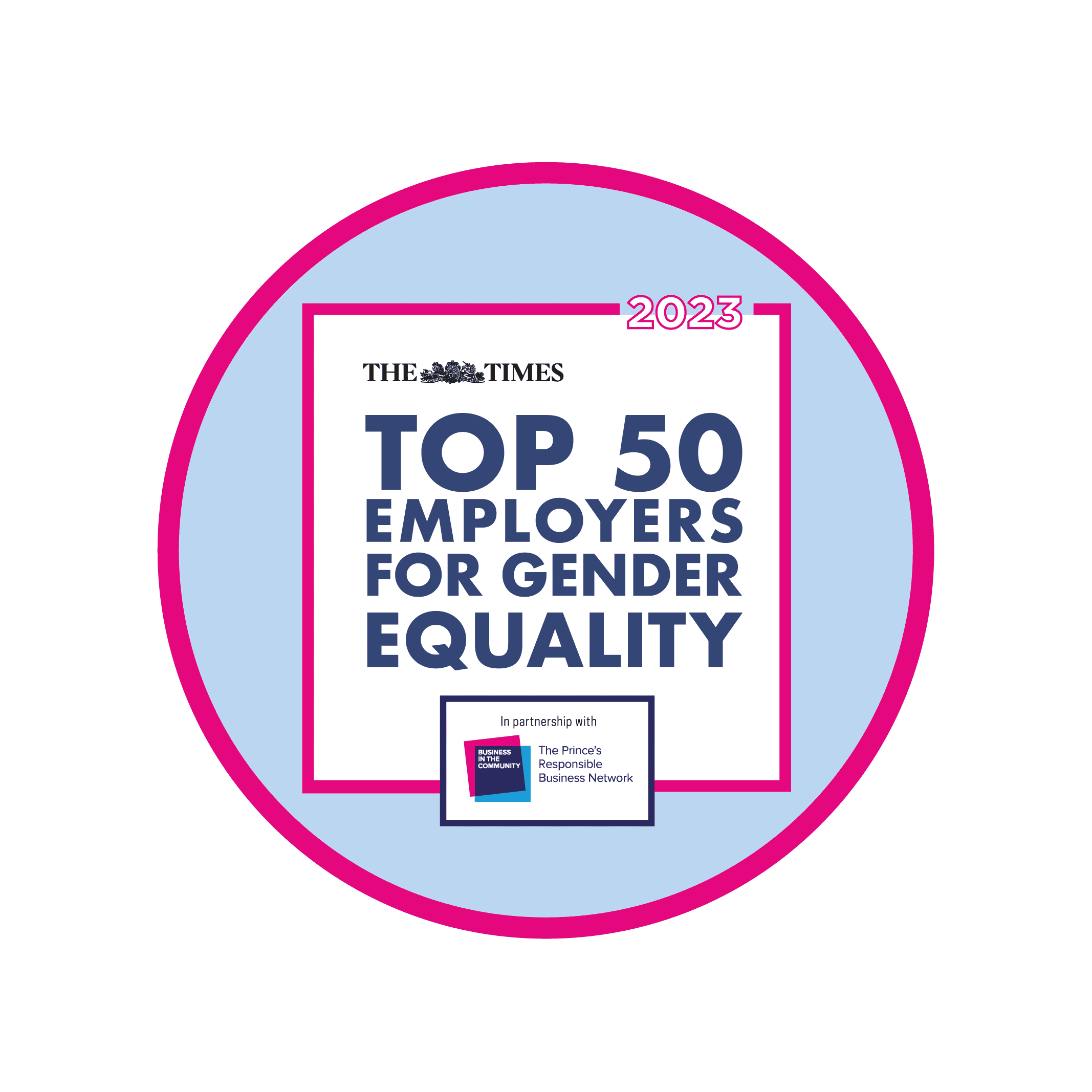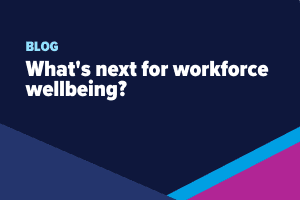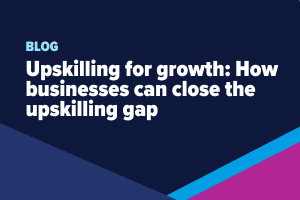Why is workplace Gender Equality still relevant in 2023?
Why is workplace Gender Equality still relevant in 2023?
The Business in the Community Gender Equality team discuss the ongoing need for gender equality.
Recognising progress
The Times Top 50 Employers for Gender Equality is the UK’s most highly profiled and well-established listing of employers taking action to create workplaces where everyone, regardless of gender, can thrive. The list’s objective is not about congratulating organisations for getting everything right but recognising those making real progress on this persistent issue of gender inequality – and uncovering insights about what can make the change we so urgently need.

It’s 2023, and there are more women in work than ever before, so do we still need to focus on Gender Equality in the workplace? The answer is yes, now more than ever. Despite perceptions, many indicators for gender equality have stayed static or are at risk of sliding backwards. There remain four key areas that stand out as to why, even today, we need to be doing more: – ongoing disparities in pay and power, persistent issues around women’s significant risk of job insecurity and the unacceptable risk of gender-based harassment and discrimination in the workplace.
2023 is a pivotal year
This year’s list comes at a pivotal time for gender equality at work, with the cost-of-living crisis hitting UK households struggling to recover from the pandemic. As a result, despite progress in some areas – more women in higher-paid occupations, greater political representation and more women going to university than men1 – for some women and girls, inequality has worsened. Applying an intersectional lens makes this even more stark: for women from Black, Asian, Mixed Race and other ethnically diverse backgrounds, inequality has worsened.
Women are paid less, earning 85 pence for every pound a man earns.2 They also bear disproportionate responsibility for unpaid care and domestic work, carrying out, on average, 60% more unpaid work than men per week.3 If this was assigned a monetary value, one study has suggested that it would be between 10 and 39% of GDP. This is a key driver of women’s inequality at work. Over two million women, 14% of all women in the UK, are paid less than the real living wage (vs. nine% of men). Our Who Cares? research found that nearly 60% of women with caring responsibilities said this impacted them from getting a new job or promotion, trapping women in low-paid and low-valued jobs.
Women also continue to be underrepresented in senior positions, currently making up around 30% of senior management roles. Only 6% of the CEOs of FTSE 100 companies are women, and none of these are from ethnically diverse backgrounds. This is perhaps unsurprising given that one in three women from ethnically diverse backgrounds say they have been unfairly passed over for or denied a promotion at work, with 27% believing their manager was actively blocking this.4
Harassment and discrimination continue
Then, there are everyday experiences of harassment and discrimination at work and domestic abuse within the home. The number of women who say they have experienced bullying and harassment in the workplace is 52%5, with reporting rates of this issue remaining woefully low. Data suggests that financial pressures caused by the cost-of-living crisis are forcing women to stay with abusive partners after such incidences increased during the pandemic.6
Employers need to be bolder and braver
However, it is clear that responsible businesses are taking action on this agenda; the work done by the organisations that have made this year’s list proves this. This year saw the greatest number of applications in the Top 50 list’s 18-year history, with the combined applicant organisations employing 2.4 million people –7.5% of the UK workforce. But progress has been slow, and as a result, we need employers to be bolder, braver and faster in their actions to address gender inequality within their workplaces or risk rolling back progress made so far.
A message from Business in the Community CEO, Mary Macleod
The Times Top 50 Employers for Gender Equality 2023 Events

Class of 2023
Thursday, 13 July
13:30 – 17:00
For Listed Organisations

Masterclass
Thursday 13 July
15:15 – 17:00
Open to All

Insights
Wednesday 27 September
10:00 – 11:00
Open to All


